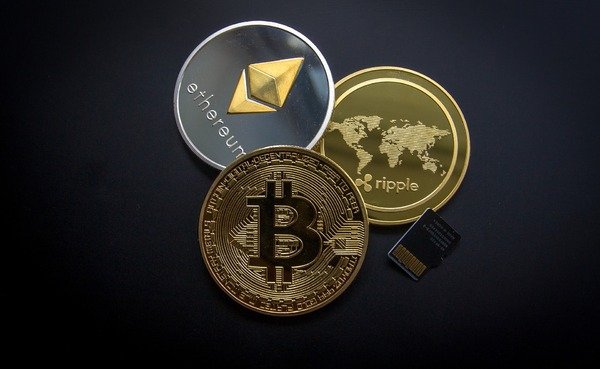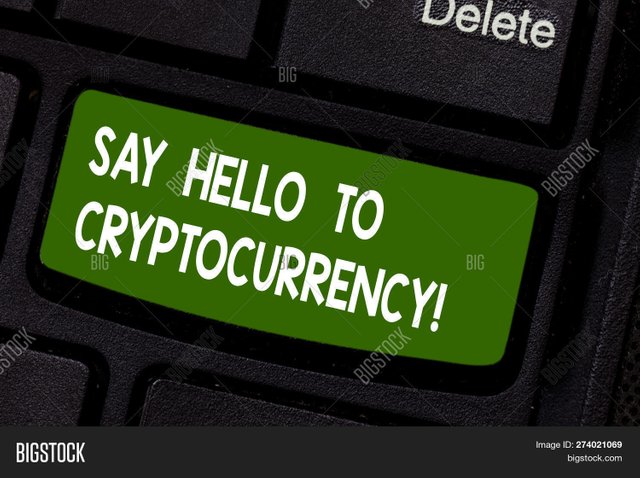Decentralized Money Is In Line With Much Bigger Trends

The world, as we know it, has become more centralized. As technology progressed, we saw a significant amount of power generated. Unfortunately, much of this ended up in the hands of the likes of Google and Facebook. In short, people have few choices in most aspects of their lives.
We have centralized utility systems. In most areas, there are only 1 or 2 choices for cable. Mobile services providers number about 3. Mega dealerships sell us our cars. Amazon (or Alibaba) dominates our online experience. Finally, Wal-Mart gets the lion's share of grocery purchases.
Our market to perpetual growth and "larger is better" has left us with fewer choices.
Of course, there is a downside to all this. As we saw more things go digital, our security is compromised. Hacks, along with identity theft, are a regular part of our lives. The single point of access is simply too tempting to those who with ill-intentions. Bank robbers of yore would be astounded at the honeypots that exist today.
The single point of failure is most likely the biggest threat to each of us in our daily lives. With centralization comes the increased risk of having things severely harmed very quickly. Why rob 10 different bank branches with a gun when you can hack into one server and clean the all accounts out?
This model is going to die and, most likely, very quickly. As we advance towards the next stage of technological development, automation is forcing decentralization. This is a mindset that is sweeping the tech world to even a greater degree than existed before.
A recent algorithm, that is also open source, provides an example of exactly how this shift is necessary. It handles robots and the concept is to create a swarm. Basically, researchers at Northwestern University created the first decentralized algorithm with a "collison[free, deadlock-free guarantee".
The researchers tested the algorithm in a simulation of 1,024 robots and on a swarm of 100 real robots in the laboratory. The robots reliably, safely and efficiently converged to form a pre-determined shape in less than a minute.
This concept not only applies to robots as we think of them in a factory but also those robots called autonomous vehicles. Obviously, the goal of AVs is to avoid collisions and not having them deadlock. Essentially, this will allow us to manage fleets of AVs on the road.
There is more to the story those. The single point of failure is eliminated.
The advantage of a swarm of small robots -- versus one large robot or a swarm with one lead robot -- is the lack of a centralized control, which can quickly become a central point of failure. Rubenstein's decentralized algorithm acts as a fail-safe.
https://www.sciencedaily.com/releases/2020/02/200224152700.htm
How does this all apply to money?

Eliminating the single point of failure when it comes to money is crucial. We see example all over the place where those in control are causing major damage to people through their ineptness. Take Venezuela for example. That currency failed due to the government corruption and exploitation. This caused enormous harm to the Venezuelan people who are stuck suffering the consequences.
Contrast this with decentralized money. Where is the point of failure? Certainly it is possible for a currency to fail. In fact, it is likely that thousands will never amount to anything. However, the difference is that there will be currencies which are wildly successful. At the same time, the ability to create money "out of thin air", just like Central Banks, provides the ability to keep improving.
Currencies are strengthened as people use them more. The network effect is something that affects money. Why is the USD the strongest currency out there? In short, it is because it is the most widely used. The Venezuelan Bolivar did not have much use outside the 25 million people in that country.
Decentralization provides people with options. It is still very early in the process but we see the foundation being laid for a completely different economic system. Those in power now shake at the idea of losing that control. Nevertheless, this is what is best for humanity.
Instead of a small group of people making all the decisions, each individual is free to opt in or out of whatever system is there.
With choices comes freedom.
The monetary aspect of things is only a part of a much bigger trend that is taking place. It is fun to watch.
If you found this article informative, please give an upvote and resteem.
Posted via Steemleo
Freedom ¿huh?
Well, in Vzla our currency didn't fail only because government corruption and exploitation. There are indeed other undesirable evil actors in the whole plot.
Yeah! perhaps we'll need more 'witnesses' consensus worldwide with an unitary concept of authentic freedom, justice, principles and ethics to truly 'decentralize' the truths. (In spanish & english languages) of course. };)
The only one in english about the subject I've found at the moment.
While I agree with the basic premise, i will devolve into devil's advocate for a moment:
What if, instead of a single point of failure, it is a handful who decide to take away a few accounts? There seems to be that ability to do that with code, and we've seen it. Who's to stop that from happening on a much larger scale?
.
Great article buddy! Im amazed at how many people in crypto dont understand the economic benefit of decentralizing. They throw buzz words around without understanding their concepts.
@taskmaster4450, Absolutely, Centralisation brought limiting beliefs for the Journey Of Human Life, but we all know that Change Is Constant and it will arrive if people like it or not.
But in my opinion this Shift is in the favour of Masses and from here we can see a World 🗺 where every Individual is a Decision Maker instead of a limiting follower who is just seen as a slave.
Let's enjoy this Empowering Journey. Stay blessed.
Posted using Partiko Android
It's in favor of the masses but doesn't our freedom rest in the hands of those in power? If this is going to work, then those in power currently have to "bless" it.
In my opinion we cannot Define the change. Let's see how things will turn out at the end of the day. Stay blessed.
Thanks you too
Welcome.
this is an awesome article that have explained the points of decentralization..kudos to the author.....
Posted via Steemleo
Without a doubt, you are quite right that we are moving towards variants of decentralization. As for cryptos, I see one of the essential developments being the need to find new ways to measure what we think of as value.
We complain a lot about the banksters being able to simply "print more money" without accountability, but where's the accountability of those who create thousands of different currencies with little more purpose than lining their own pockets through a flimsy White Paper and a hyped up ICO?
The assumption that people in a decentralized system are "smart enough" to detect such things would — in my opinion — be folly. Sure, "WE" can see such things... but your average "Joe Sixpack?" Not so much...
=^..^=
Posted via Steemleo
Deep share here again. Deserves to be shared abroad.
Yes we have the options here and we have the freedom and control of our resources against what the centralized economy has. Now people like the centralized economy more and are scared of the freedom that the decentralized economy promises.
Where did things go wrong? What has decentralized systems not done that is scaring away users?
Posted via Steemleo
Thnaks @taskmaster4450 for the enjoyable read ;)
I agree. Good article.